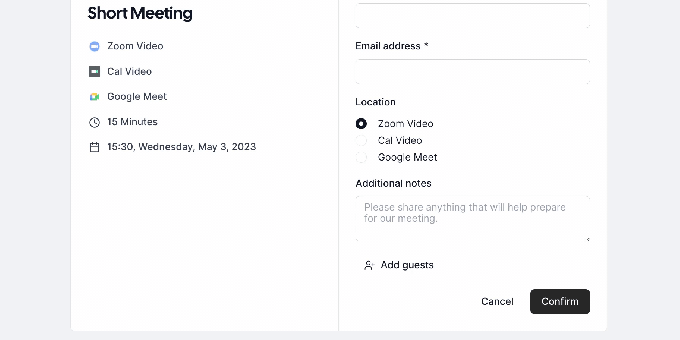
Image Source: Pexels
If you’ve ever felt tied down by Big Tech's proprietary chains, you’re not alone. Thankfully, the world of open-source software is here to offer you freedom and flexibility without compromising on your productivity. Let’s explore some fantastic open-source alternatives to those big-name apps we all know—and sometimes, tolerate.
1.Penpot: Your Design Ally
Penpot is shaking up the design world with its web-based platform that’s perfect for everyone from solo designers to large enterprises. When Adobe’s $20 billion Figma acquisition hit a regulatory snag, Penpot stepped up, attracting a wave of new users and even securing $8 million in funding. For those who love a good brainstorming session, Excalidraw is another open-source tool worth your attention, offering collaborative whiteboarding at its best.
2.Cal.com: The Scheduler for All
We all know and love Calendly, but if you’re in the market for an open-source scheduler, Cal.com is a must-try. It’s designed to be the scheduling infrastructure for everyone—whether you’re a freelancer or running a small business. Cal.com is versatile, allowing you to host it yourself or opt for their SaaS service. It’s so good, the company raised $25 million in Series A funding.
3.Dub.co: Manage Your Links with Ease
Bitly might be the king of link management, but if you’re after an open-source alternative, Dub.co is worth checking out. Created by a former Vercel employee, Dub.co offers a full suite of URL management tools, from branded links to time-series data, all while giving you the option to host it yourself.
4.TabbyML: AI Coding Assistant
If you’ve heard of GitHub Copilot, you know how AI can transform coding. But unlike Copilot, TabbyML is open source and can be fully self-hosted. Launched by two ex-Googlers, this tool is designed to give you the same AI-powered coding support without locking you into a proprietary system.
5.Chatwoot: Customer Support Your Way
Zendesk is a giant in customer relationship management, but it’s not for everyone—especially if you prefer open-source solutions. Enter Chatwoot, a customer engagement platform that you can host yourself, keeping all your data in-house and under your control.
6.Bitwarden: Secure Your Passwords
With password managers like LastPass and 1Password dominating the market, Bitwarden stands out by being open source. It’s a secure, transparent option for managing your passwords, and its core components are available for anyone to view, modify, and distribute. It’s so good, it’s even raised $100 million in funding.
7.AppFlowy: Notion Alternative
If Notion is your current go-to for project management but you’re craving something more customizable, AppFlowy is here to save the day. It’s an open-source platform that lets you manage tasks, create documents, and track progress—all within a self-hostable environment.
8.Ghost: The Publisher’s Playground
For all you writers out there, Ghost is an open-source platform that rivals Substack and Medium, offering a clean, user-friendly interface with no fees taken from your subscriptions. It’s perfect for anyone looking to build and monetize a blog or newsletter without being tied to a closed ecosystem.
9.PhotoPrism: Manage Your Photos
Google Photos might have ended its free unlimited storage, but PhotoPrism is here to fill that gap. This Berlin-based tool lets you run your own photo management server, complete with tools for backing up, organizing, and even recognizing faces in your photos. Whether you’re a casual user or managing photos for an organization, PhotoPrism offers flexible plans for everyone.
The rise of remote work brought screen recording tools like Loom into the spotlight. But if you’re looking for an open-source alternative that’s not under the thumb of a billion-dollar corporation, Screenity is your go-to. It’s Chrome-only for now, but it’s perfect for capturing those all-important tutorials or feedback sessions.
11.Nextcloud: Take Control of Your Cloud
Why hand over your data to the big players when you can keep it secure with Nextcloud? This open-source platform lets you host your own cloud storage, giving you total control over your files. Whether you’re a hobbyist or an enterprise, Nextcloud prioritizes privacy, security, and data sovereignty—no more worrying about where your data ends up.
These tools offer the freedom, customization, and security that proprietary software often lacks. Whether you’re a freelancer, a small business owner, or just someone who loves exploring new tech, these open-source alternatives are worth adding to your toolbox. Give them a try and see how they can elevate your productivity game!
Until next time, happy creating! 🚀











